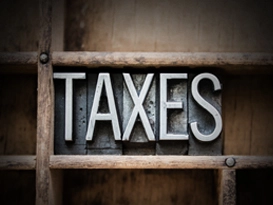GST Council was described on the floor of the Parliament as a federal contract. Now these terms are of huge significance. Federalism in itself is nebulous concept. It cannot be examined without examining the ground realities. Ground realities regarding the State and the Centre walking in tandem. Once GST Council is described as a federal contract, the ground realities are much more niche. For eg. the Centre and the States, they cannot take a decision except without the recommendation of the GST Council. GST Council in turn, cannot take a decision unless both the Centre and the States agree to a particular decision.
It was therefore, for this reason, that a huge debate happened across the floor of the Parliament regarding the veto powers. Technically, both the Centre and the States have a veto. Unless both of them agree, they cannot function and the GST Council therefore cannot recommend. Therefore, GST Council is an institution which actually requires both the State and the Centre to work together, which essentially means that federalism is acted on a premise that there is a cooperation both between the Centre and the States. Therefore it is a huge change.
Let us take certain illustrations. Petroleum, is currently outside the ambit of GST. When will petroleum get subsumed in GST. It will get subsumed when the GST Council so recommends. Can the GST Council recommend only on the basis of the Union’s guidelines or it can be subsumed exclusively because the State’s want; Neither. It will be subsumed only when both the Union and the States converge and agree at the forum of GST Council that petroleum should be subsumed.
In fact, the Constitution itself provides a guiding vehicle for GST Council. It is stipulated that a harmonised national market for goods and services and a harmonised tax are the guiding principles which will decide the functioning and decision making of GST. Neither of these can be attained unless both the Centre and the States converge on the policy for GST, at GST Council. This is a significant leap from Article 263 which provides for Inter-State Council.
Let us make a comparison. GST Council has met almost thirty times within a scope of one year for the purposes of GST. Whereas, the Inter-State Council has not even met ten times across seven decades of independent India. This clearly shows how Union and the States are vitally interested in functioning together. Therefore, GST Council is actually one institution, which can give not just a guideline but also it can set a model, where, even for other purposes the Centre and State may get together for cooperative decision making and therefore enhancing the concept of cooperative federalism.

